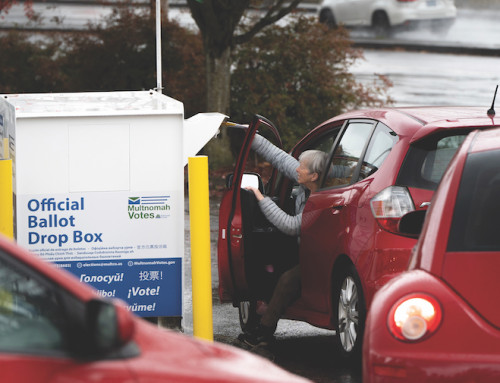A committee in the Ohio Senate is mulling a bill devised to close a number of loopholes in state child support laws.
Members of the Judiciary Committee recently heard testimony from child support enforcement agencies throughout the Buckeye State — all supportive of the measure brought before the committee by Sen. William Coley, R-West Chester.
According to the lawmaker, Senate Bill 70 seeks to update and streamline the Ohio Child Support Program for the benefit of Ohio’s families.
“SB 70 fine-tunes the child support administrative processes,” Coley said during sponsor testimony. “The administrative changes in this legislation are important for providing consistency and efficiency in these processes.”
The bill makes numerous changes to various provisions of the law governing the establishment of paternity, the calculation of child support, the collection and disbursement of child support, and support defaults.
“Ohio’s child support program includes one in every three children,” said Amy Roehrenbeck, executive director of the Ohio CSEA Directors’ Association, a membership organization of county child support enforcement agencies. “One cornerstone of our program is our administrative processes.
“These processes have been put in place over a span of years, to expedite case processing and provide an efficient resolution for parties, saving court docket space for those cases that are especially complex and/or contested. As these processes have evolved, loopholes have also materialized, creating some unintended consequences, and inconsistency county to county.”
She said SB 70 would make technical tweaks, improving consistency and expediting processes statewide, while not affecting the substantive rights of the parties involved.
Some of the provisions of the bill include:
• Clarification that a child support enforcement agency may order a mother to pay child support; currently, a child support enforcement agency only can order a father to pay support in an administrative order;
• Clarification of a uniform effective date for an administrative support orders to bring consistency statewide, as there are currently a variety of effective dates being used county to county; and
• Expedited process for administrative review and adjustment, by shortening the review period from 45 days to 30 days to assist parties with quicker reviews and adjustments of child support orders.
Franklin County Child Support Enforcement Agency Director Susan Brown told committee members that she has noticed the inconsistencies from county to county.
“Some of this is to be expected, given the judicial component of our program, but other discrepancies have been caused by loopholes in our statutes, such an our inability to establish an administrative order for a mother to pay child support, and other inconsistencies, such as the varying effective dates of administrative child support orders and the ability to begin the termination process prior to the event occurring, instead of after,” she said. “SB 70 will make timely and necessary changes to fine tune our administrative processes, standardize appeal timeframes, and improve consistency statewide.”
She agreed with Roehrenbeck that the overall efficiency and effectiveness of the support agencies would improve with enactment of the bill.
Another provision of the bill allows for payment-amount modifications in arrears-only cases, giving express authorization to child support enforcement agencies to modify the payment under appropriate circumstances.
“SB 70 is a non-controversial adjustment to our administrative processes — updating and streamlining the program to better assist the families we serve,” Brown said.
Coley told his peers the issues addressed by the bill were brought to his attention in response to the work of the Shareholders’ Reform Group of 2002, comprised of legislators, members of the judiciary, Ohio Department of Job and Family Services representatives, county child support enforcement agency professionals and mothers and fathers groups.
SB 70, which has cosponsor support of five of Coley’s peers, is a facsimile of Substitute Senate Bill 308 from the 131st General Assembly, clearing a Senate vote unanimously.
A third hearing of the bill before the committee had not been scheduled at time of publication.










